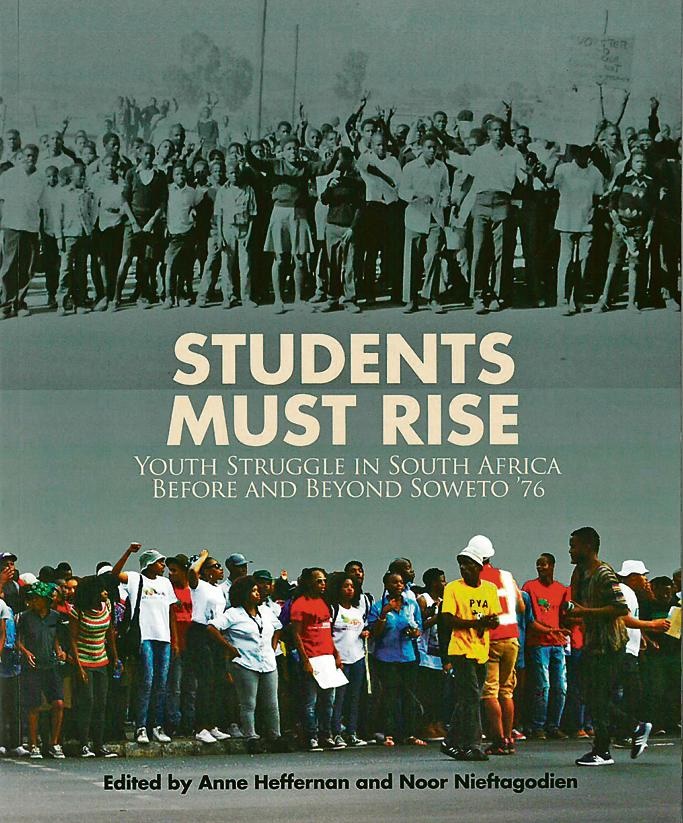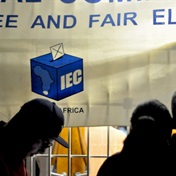
Students Must Rise: Youth Struggle in South Africa Before and Beyond Soweto ’76
Edited by Anne Heffernan and Noor Nieftagodien
224 pages
R280
By early June 1976, the simmering tension in the schools would have alerted anyone to the danger inherent in the spirit of rebellion among the students. We needed an outlet for our pent-up energy.
The junior secondary schools were already mobilising themselves against Afrikaans as a medium of instruction. They were taking the campaign to the streets.
It was clear to us that our obligation was on the side of our younger sisters and brothers. Afrikaans meant further subjugation, and it was another way of ensuring that black children had very few chances in life.
On Friday June 11, the SA Students Movement finally acted. We convened an extraordinary student body meeting after school, instead of holding the usual SA Students’ Movement meeting. We discussed the crisis at black schools, police brutality and the calculated plan to put pupils in detention.
We, the leadership, then invited students to the next meeting that the SA Students’ Movement was planning to convene to discuss these issues with the entire student body of Soweto. The meeting was to be held at the Donaldson Community Centre in Orlando East on Sunday, June 13.
The Donaldson Community Centre was a huge community hall, and a pride of the people of Soweto. It sat comfortably in the old Orlando township, which was known for its pioneering civil rights actions led by the late Sofasonke Mpanza.
Approaching the centre that day, I could see groups beginning to converge on the venue from various directions. The students were obviously excited, gesturing animatedly. There was a sense of urgency and seriousness.
Tempers flared high at the meeting, for we all felt it was time we took action. The government’s continued insistence on imposing Afrikaans as a medium of instruction on junior secondary schools had undermined the education of the children and had to be stopped.
Pupils shared stories about cruel police activities in their schools. We all understood that while the imposition of Afrikaans was a catalyst for action, it was not the real issue. The real issue was to free ourselves from an education that aimed to keep us as ‘boys and girls’. The imposition of Afrikaans was an opportunity given to us by the system to stand up and say once and for all that ‘it is enough’. Someone had to fight the system by all means possible. The price to be paid would be less damaging than the passive acceptance of the status quo. This was a fight for education, our right to education and what our parents had always valued as the only way to free ourselves.
I made my sentiments clear at the meeting, which, I think, is the reason I ended up being elected on to the action committee, which became the Students’ Representative Council that was tasked with the responsibility of organising protest meetings and actions. The students agreed that June 16 was the day when all the students of Soweto would march in protest against Afrikaans, Bantu education and the illegitimate South African government. The list of students’ grievances grew longer every day.
I was happy to be finally involved in direct social action. For too long, I had been part of discussions about the government (since I was a small child) and now, in my final months as a teenager, I had a chance to make a meaningful contribution.
The events of the cold morning of June 16 1976 are written in blood, ash and tears. I met with other student leaders to review plans before the march was scheduled to begin at 6.30am. The direction the march was to follow was clear. Those coming from the west would meet with other students at central designated points. The Naledi group would proceed northwards via Zola, Emdeni, Jabulani, Zondi, Mofolo North, Mofolo Central, Dube and Orlando West townships, and finally all schoolchildren would meet at the Orlando Stadium, where the student representatives would lead discussions about Afrikaans and the department of education, and draw up a petition for the department.
After this act of solidarity, the students would disperse. It sounded terribly simple, too simple. To ensure that the march was disciplined, and that all the students were accounted for at all times, we had agreed to march in rows, each row consisting of five students, holding hands. Each student was responsible for the person whose hand he or she held. From afar, the students looked like cornrows.
There was something beautiful and dignified about the gathering of the students that morning at Naledi High School. The girls were in black-and-white check tunics, and the boys wore grey pants, white shirts and black blazers.
As we left the school gates, we chanted the sorrowful Senzeni na? Isono sethu bubumnyama lamabhunu ayizinja (What have we done? Our crime is our blackness.
These white rulers are dogs). As we led the big march, our spirits lifted and the songs began to be more spontaneous and full of vitality: Sizobadubula ngembhay’mbhayi, a song by Miriam Makeba, was among the most popular freedom songs on that morning, but we also made up songs as we marched, converting religious hymns and choruses to freedom songs.




 Publications
Publications
 Partners
Partners








